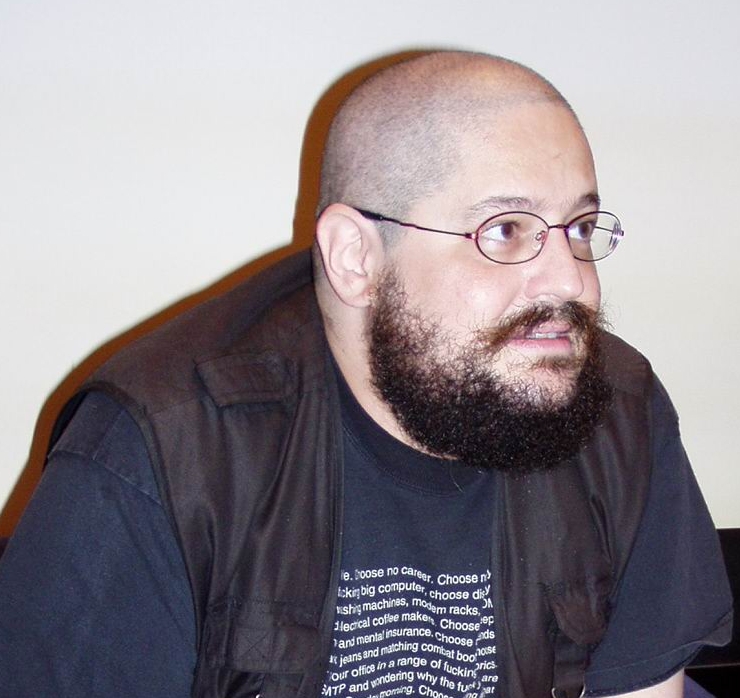Charles Stross: Frasi in inglese
He stops in midsentence, his mouth open, staring dumbly.
Origine: Accelerando (2005), Chapter 8 (“Elector”), pp. 347-348
Origine: Singularity Sky (2003), Chapter 7, “A Semiotic War” (p. 159)
“Lawyers do not mix with diplomacy.”
Origine: Accelerando (2005), Chapter 5 (“Router”), p. 188
Origine: Iron Sunrise (2004), Chapter 10, “Murder by Numbers” (pp. 160-161)
“The Cold War was all about who could build the biggest refrigerator, wasn’t it?”
Origine: Singularity Sky (2003), Chapter 14, “The Telephone Repairman” (p. 298)
“Had enough of my poetry yet? That’s why they pay me to fight demons instead.”
Overtime (2009)
The Laundry Files, The Rhesus Chart (2014)
“Perforce, the family that preys together stays together.”
Origine: Rule 34 (2011), Chapter 22, “Toymaker: Happy Families” (p. 251)
“Never trust a man who thinks his religion gives him all the answers.”
Origine: Halting State (2007), Chapter 33, “Elaine: Gentlemen and Players” (p. 275)
in one another’s backs
Origine: Iron Sunrise (2004), Chapter 13, “Hold the Front Page” (pp. 200-201)
Origine: Singularity Sky (2003), Chapter 6, “Telegram from the Dead” (p. 139)
The Curse of Laundry http://www.antipope.org/charlie/blog-static/2014/10/the-curse-of-laundry.html, October 19, 2014
The Laundry Files
Origine: Rule 34 (2011), Chapter 22, “Toymaker: Happy Families” (p. 248)
Origine: Iron Sunrise (2004), Chapter 14, “Sybarite Class” (p. 228)
Origine: Singularity Sky (2003), Chapter 14, “The Telephone Repairman” (pp. 296-297)
Origine: Iron Sunrise (2004), Chapter 5, “Another Day, Another Editorial” (p. 71)
“Well then. Will the naysayers please leave the universe?”
Origine: Accelerando (2005), Chapter 5 (“Router”), p. 215
Origine: Halting State (2007), Chapter 6, “Elaine: Death or Coffee” (p. 42)
